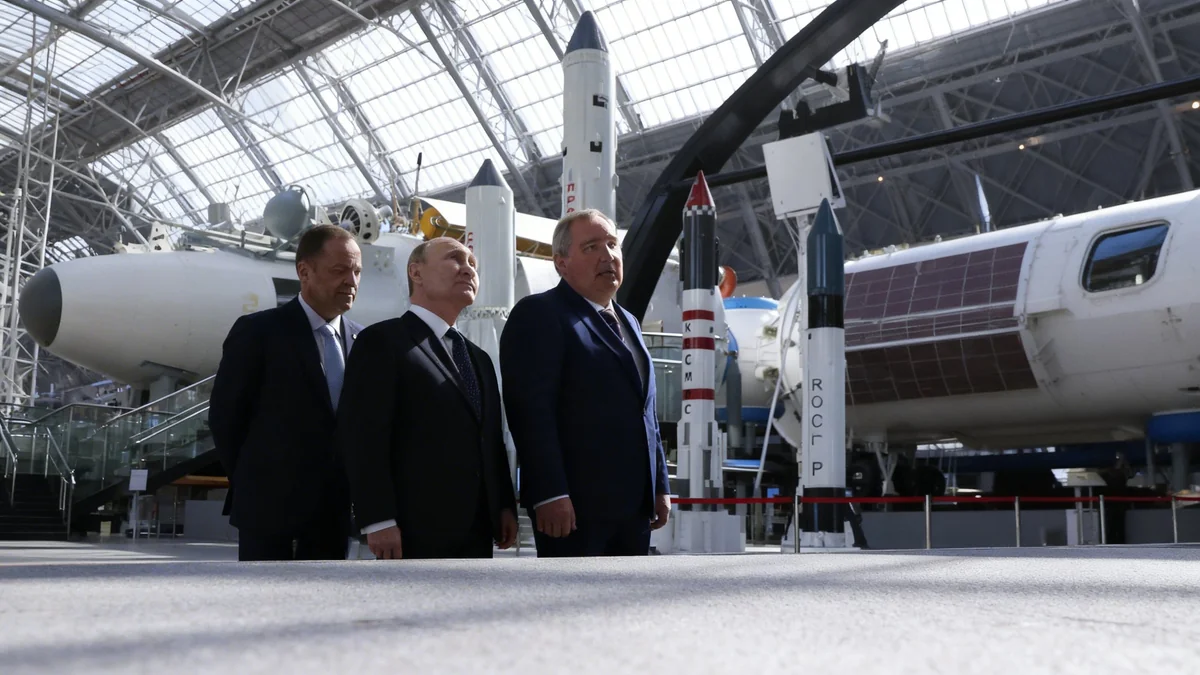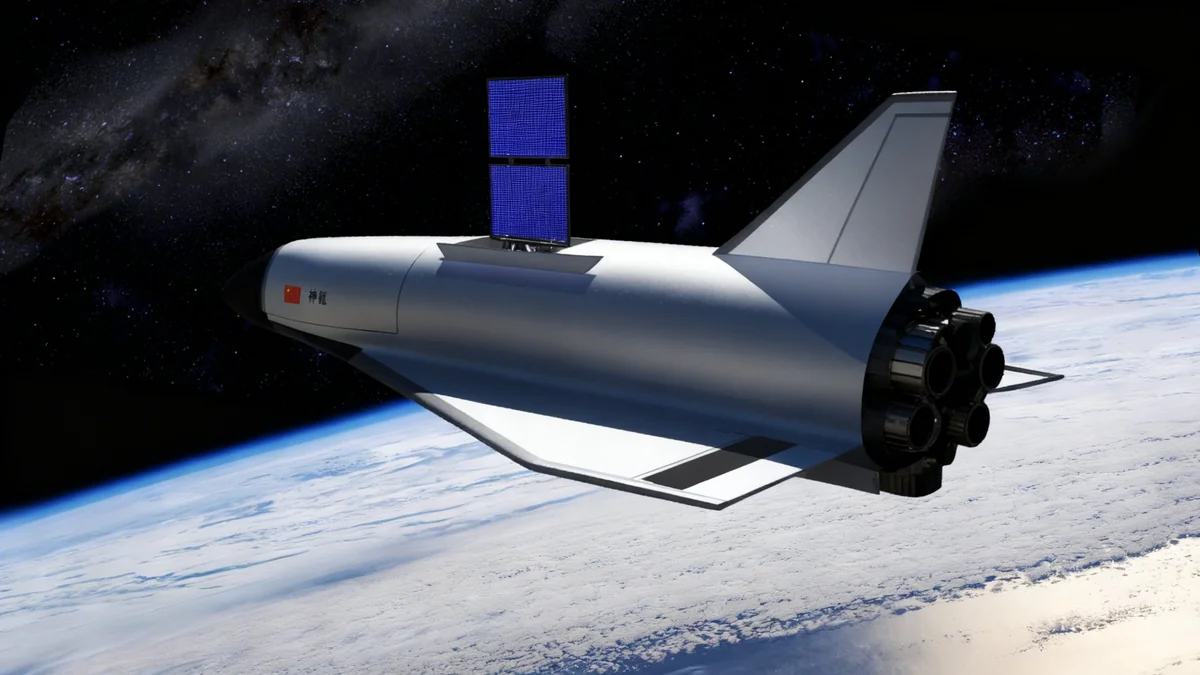Germany's Defense Minister, Boris Pistorius, has raised alarms over Russia's increasing military activities in space. He stated that Russian satellites are actively monitoring orbital assets used by the German armed forces, signaling a new and dangerous phase in geopolitical tensions that extends beyond Earth's atmosphere.
In response to what he described as a direct threat to national security, Pistorius announced that Germany plans to invest a substantial €35 billion in its space defense capabilities by 2030. This funding is intended to protect critical infrastructure and establish a credible deterrent against aggression in orbit.
Key Takeaways
- German Defense Minister Boris Pistorius stated that Russian "inspector" satellites are shadowing satellites used by the German military.
- Germany has announced a planned investment of €35 billion by 2030 to enhance its space security and defense capabilities.
- The minister warned that future conflicts will increasingly be fought in orbit, making satellite networks a critical vulnerability.
- The investment aims to develop resilient satellite constellations, secure ground infrastructure, and offensive capabilities as a deterrent.
Escalating Tensions in Earth's Orbit
German Defense Minister Boris Pistorius has brought attention to specific actions in space that he attributes to Russia. According to the minister, at least two Russian satellites are conducting close-proximity operations, or shadowing, of Intelsat satellites.
These Intelsat satellites are crucial for the communications of the Bundeswehr, Germany’s armed forces, as well as other allied entities. Such maneuvers are seen by defense experts as a form of intelligence gathering and a potential precursor to hostile action.
The Nature of the Threat
The act of one satellite closely following another allows an adversary to collect valuable data. This information can include orbital paths, communication frequencies, and potential vulnerabilities. Security analysts suggest that this data could be used to plan future jamming, blinding, or even physical attacks on these critical assets.
"Conflicts of the future will be fought openly in orbit," Pistorius stated, emphasizing the strategic shift that requires a new approach to national defense.
This development is part of a broader pattern. In 2021, Russia conducted an anti-satellite (ASAT) missile test that destroyed one of its own satellites. The test created a large field of hazardous debris in low Earth orbit, drawing widespread international condemnation for its reckless nature and the danger it posed to all space activities.
Germany's Strategic Investment in Space Security
To address these emerging threats, Germany is preparing a significant financial commitment. The planned €35 billion investment through 2030 is designed to fundamentally upgrade the nation's space defense posture.
The funds will be allocated across several key areas aimed at creating a more robust and resilient space architecture. A primary goal is to ensure that Germany can protect its vital satellite networks, which are essential for modern military operations, economic stability, and daily life.
Breakdown of Space Defense Goals
- Resilient Satellites: Developing new constellations that are harder to disable or destroy.
- Ground Infrastructure: Securing control stations and data links from cyber and physical attacks.
- Deterrent Capabilities: Building offensive space systems to discourage potential aggressors.
- Advanced Technology: Investing in laser-based defenses and highly maneuverable satellites.
This strategic shift includes the development of offensive capabilities. Pistorius emphasized that the ability to pose a threat to an adversary's space assets is a necessary component of deterrence. This marks a significant evolution in Germany's traditionally cautious defense policy, driven by the changing security landscape in Europe.
The Geopolitical and Military Context
The timing of Germany's announcement is closely linked to the ongoing conflict in Ukraine, where space-based assets have proven to be indispensable. Satellite intelligence and communication provided by Western companies have given Ukrainian forces a significant advantage, a fact that has not gone unnoticed by Russia.
Russia's actions in orbit are widely viewed as part of its broader hybrid warfare strategy. By targeting the space-based systems of Western nations, Russia could seek to disrupt military command and control, navigation systems like GPS, and global financial transactions.
Space as a Contested Domain
For decades, space was considered a relatively peaceful domain focused on science and exploration. However, major world powers, including Russia and China, have been rapidly developing their space warfare capabilities. This has led NATO to formally recognize space as an operational domain, alongside land, sea, air, and cyberspace. An attack on an ally's satellite could potentially trigger the alliance's collective defense clause, Article 5.
The German initiative aligns with a broader push among NATO members to bolster their defenses in space. The United States established the Space Force in 2019 for this purpose, and other European nations are increasing their own investments in space security.
Implications for Global Security and Industry
The increasing militarization of space carries profound implications for international security. A conflict in orbit could have catastrophic consequences, potentially disabling the global communication and navigation networks that modern society depends on. The resulting debris could also render key orbits unusable for generations, impacting both military and commercial activities, including services like SpaceX's Starlink.
Economic and Industrial Impact
Germany's €35 billion investment is expected to provide a major boost to the European aerospace and defense industry. Companies like Airbus and OHB System are positioned to win significant contracts for developing the next generation of satellite and defense technology. This will likely create thousands of high-tech jobs and spur innovation in related fields.
However, critics raise concerns about the potential for an arms race in space. As more nations develop offensive capabilities, the risk of miscalculation and escalation grows. International agreements like the 1967 Outer Space Treaty, which prohibits weapons of mass destruction in orbit, do not fully address the deployment of conventional anti-satellite weapons, leaving a dangerous gray area in international law.
As Germany moves forward with its plans, the international community faces the challenge of balancing national security needs with the goal of preserving space as a peaceful domain for all. The coming years will be critical in determining whether diplomacy can prevent terrestrial conflicts from extending into the final frontier.





